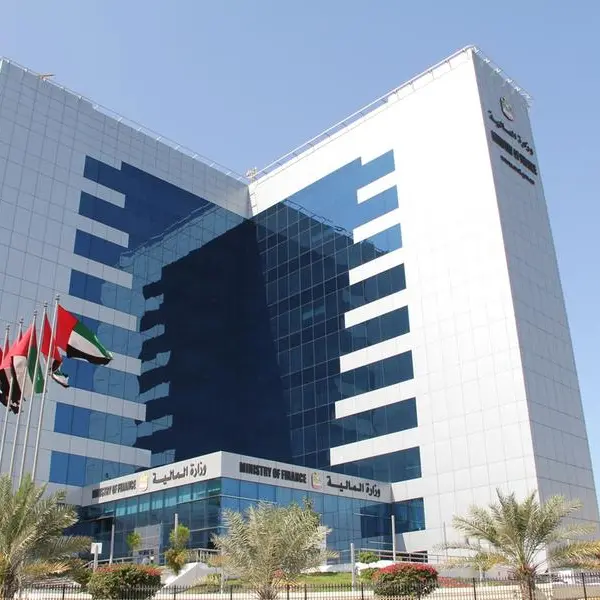For generations, women have been holding the financial fort for their families. With changing times, they have also contributed towards the financial requirements of the family. But a woman's other role of managing finances still remains their prerogative. Any change in household expenses directly effects financial management at home. Value added tax (VAT) is one of such changes that are certainly on the minds of most of working and non-working women at the moment. It may seem small in percentage but the effect of VAT on day-to-day expenses is certainly going to be noticeable. The ambiguity around the subject will clear once VAT is actually implemented at the macro level.
The scope and extent of VAT will unlock once it starts rolling. VAT, on items of daily consumption, will have a direct impact on our standard of living. Key food items, healthcare and education services will be excluded from the proposed Gulf-wide VAT scheme, according to Younis Haji Al Khoori, Under-secretary of the UAE's Ministry of Finance. Approximately 94 foodstuffs items are exempted from VAT. Also, the government will apply a zero rate on healthcare and the education sector.
With respect to the application of taxes, VAT comes under a category of indirect taxes. Though VAT is applied on items and is not gender-specific yet, there is some concern about the role of indirect taxation on women and their lifestyles. VAT can exert a gender bias because of different consumption patterns of women. Women tend to purchase more goods and services other than that promote health, education and nutrition as compared to men. Day-to-day items, luxury goods, entertainment - all of these are mostly bought through women's hands. This creates the potential for women to bear a larger VAT burden even after VAT exemptions, reduced rates or zero rating.
Besides common expenses, we women have many other expenses that will increase due to VAT. To start with, our shopping is on the hit list. To maintain our standard of living, the shopping list has to decrease by five per cent or our shopping expenses will increase by five per cent.
Cosmetics, beauty services and sanitary products are a few of the gender-specific expenses. The issue of taxing sanitary protection has been the subject of much debate and publicity in most of countries the in past. We are yet to find if sanitary protection products will fall under the VAT or non-VAT category.
For sure, the ever-increasing cost of cosmetics will be raided with VAT. The longer the shopping list, the bigger will be spent. There is one more area under cover: online shopping. We still do not know how online shopping will be affected by VAT.
Any shopping you do abroad won't be affected: VAT is a local tax, country- or region-specific, hence it will not affect overseas purchases. Currently, as a UAE resident, if you shop in a country with VAT, you can claim it back at the destination airport before stepping on the plane to come home. That will remain the same, because as is common practice around the world, you can claim back the VAT you pay on purchases over a certain amount under the current proposals.
Pink tax: As it is, women pay more than men for razors, shampoo and other basic goods. Though the term may sound silly, the 'pink tax' is a real thing that costs women a bundle every year. The phrase refers to the additional cost of products marketed toward women, compared to similar products that are gender-neutral or marketed towards men. Because many products marketed to women feature lurid pink colours, it can be known as the pink tax. Pink tax is the extra price that we pay for everything that is same as its counterpart male version of goods... except the price.
According to a New York study, on average, products for women or girls cost seven per cent more than comparable products for men and boys. Some examples: girls' clothing, four per cent more; girls' toys and accessories, seven per cent more; women's clothing, eight per cent more; women's personal care products, 13 per cent more. That means women are paying more for tonnes of everyday goods like razors, shampoo and lotion. A woman's entire wardrobe like socks (three per cent more expensive for women) to shirts (15 per cent more) costs more than a man's. Services such as dry cleaning and haircuts are often more expensive for women, too.
The pink tax isn't just for adults; the prices of clothes and toys for girls are higher too compared to the same products for boys. I don't know if this is because pink colour is expensive to make, or is there any other valid reason.
All said and done, VAT is not only source of income for a governing body in a country but it is also a source of new employment. Many VAT consultancies have emerged in past few months in UAE creating employment opportunities for men and women.
VAT has generated a new industry of work/employment for oil-based economies. Welcome, VAT.
The writer is an entrepreneur and financial planning consultant. Views expressed are her own and do not reflect the newspaper's policy.
Copyright © 2017 Khaleej Times. All Rights Reserved. Provided by SyndiGate Media Inc. (Syndigate.info).
The scope and extent of VAT will unlock once it starts rolling. VAT, on items of daily consumption, will have a direct impact on our standard of living. Key food items, healthcare and education services will be excluded from the proposed Gulf-wide VAT scheme, according to Younis Haji Al Khoori, Under-secretary of the UAE's Ministry of Finance. Approximately 94 foodstuffs items are exempted from VAT. Also, the government will apply a zero rate on healthcare and the education sector.
With respect to the application of taxes, VAT comes under a category of indirect taxes. Though VAT is applied on items and is not gender-specific yet, there is some concern about the role of indirect taxation on women and their lifestyles. VAT can exert a gender bias because of different consumption patterns of women. Women tend to purchase more goods and services other than that promote health, education and nutrition as compared to men. Day-to-day items, luxury goods, entertainment - all of these are mostly bought through women's hands. This creates the potential for women to bear a larger VAT burden even after VAT exemptions, reduced rates or zero rating.
Besides common expenses, we women have many other expenses that will increase due to VAT. To start with, our shopping is on the hit list. To maintain our standard of living, the shopping list has to decrease by five per cent or our shopping expenses will increase by five per cent.
Cosmetics, beauty services and sanitary products are a few of the gender-specific expenses. The issue of taxing sanitary protection has been the subject of much debate and publicity in most of countries the in past. We are yet to find if sanitary protection products will fall under the VAT or non-VAT category.
For sure, the ever-increasing cost of cosmetics will be raided with VAT. The longer the shopping list, the bigger will be spent. There is one more area under cover: online shopping. We still do not know how online shopping will be affected by VAT.
Any shopping you do abroad won't be affected: VAT is a local tax, country- or region-specific, hence it will not affect overseas purchases. Currently, as a UAE resident, if you shop in a country with VAT, you can claim it back at the destination airport before stepping on the plane to come home. That will remain the same, because as is common practice around the world, you can claim back the VAT you pay on purchases over a certain amount under the current proposals.
Pink tax: As it is, women pay more than men for razors, shampoo and other basic goods. Though the term may sound silly, the 'pink tax' is a real thing that costs women a bundle every year. The phrase refers to the additional cost of products marketed toward women, compared to similar products that are gender-neutral or marketed towards men. Because many products marketed to women feature lurid pink colours, it can be known as the pink tax. Pink tax is the extra price that we pay for everything that is same as its counterpart male version of goods... except the price.
According to a New York study, on average, products for women or girls cost seven per cent more than comparable products for men and boys. Some examples: girls' clothing, four per cent more; girls' toys and accessories, seven per cent more; women's clothing, eight per cent more; women's personal care products, 13 per cent more. That means women are paying more for tonnes of everyday goods like razors, shampoo and lotion. A woman's entire wardrobe like socks (three per cent more expensive for women) to shirts (15 per cent more) costs more than a man's. Services such as dry cleaning and haircuts are often more expensive for women, too.
The pink tax isn't just for adults; the prices of clothes and toys for girls are higher too compared to the same products for boys. I don't know if this is because pink colour is expensive to make, or is there any other valid reason.
All said and done, VAT is not only source of income for a governing body in a country but it is also a source of new employment. Many VAT consultancies have emerged in past few months in UAE creating employment opportunities for men and women.
VAT has generated a new industry of work/employment for oil-based economies. Welcome, VAT.
The writer is an entrepreneur and financial planning consultant. Views expressed are her own and do not reflect the newspaper's policy.
Copyright © 2017 Khaleej Times. All Rights Reserved. Provided by SyndiGate Media Inc. (Syndigate.info).




















